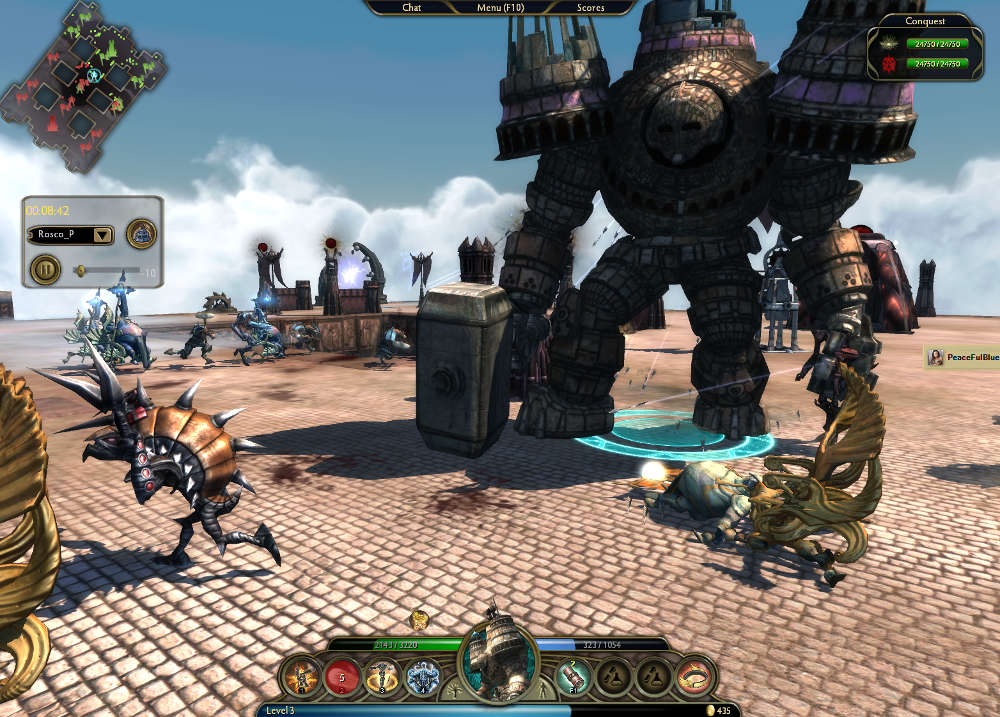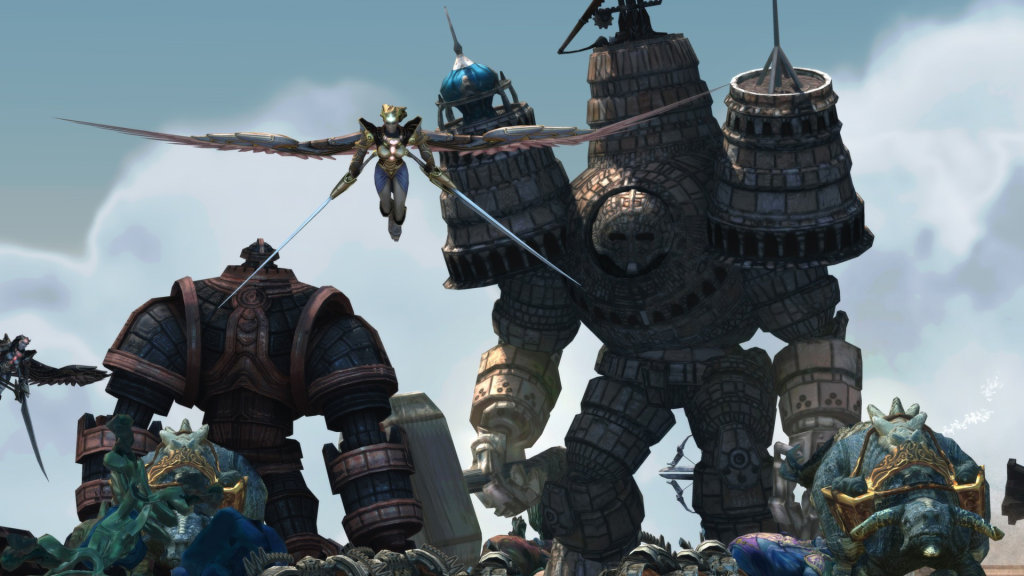
While there is no prescription for innovation, combining old methods in novel ways is one method to offer new ideas. This road was adopted by the Gas Powered Games company, which created Demigod, a game marketed as a hybrid of the genre known as “action RPG” and real-time strategy. However, Doctor Moreau-style games, in this case genetic experimentation on a variety of computer game genres, can result in a crippled hybrid that loses the advantages of its progenitors while inheriting their downsides.
In the case of products with a “RPG” element in the description, the review normally starts with a presentation of the world and storyline, followed by a presentation of the narrative and an outline of the primary plot that hooks the player into the protagonist’s experiences. The game’s plot is presented with the departure of the Demiurge, which paved the way for demigods from all over the world to enter the pantheon and now there are eight heroes who are now competing to see who deserves to ascend to godhood.

The characters are separated into two groups: assassins, who focus on destroying the opponent on their own, and generals, who can call in reinforcements. Throughout the game, players collect experience, which allows them to develop a limited variety of abilities and improve their fighting proficiency. The character development mechanism narrows our options in a straight sequence of characteristics and seldom builds links between talents. We can have all of the strongest powers if we have a sufficiently high level and enough development points. We are never required to pick between specialisations.
Demigod is primarily intended for online play, therefore the single-player campaign is confined to a tournament of combat against artificial bots. However, before battling on the Internet, it is important to understand the game mechanics and the combat laws. At this point, we run into a stumbling block in the form of a lack of any instruction. The developers did not anticipate the prospect of a seamless introduction of the player to character control and unit administration, thus the handbook contains only inadequate information. We need to break through this barrier in order to understand what the game is all about and what we need to do to win.
The notion is identical here, because portals in each of the arenas periodically spawn a specific number of allied units, which back our demigod in the struggle against the adversary and perish en masse on his defence lines. The primary distinction is that we may acquire more and more strong units to bolster defence, but we have no control over individual elements: we cannot construct additional towers or even improve certain watchtowers or units.
There are no specific skills or dependencies between the units, such as the rock-paper-scissors rule seen in RTS games. Is the “Tower Defense” component superior? Because the player has no influence over individual defence systems or groupings of units, the answer is no. The AI in charge of them is exceedingly foolish, frequently resulting in the loss of even huge groups of improved soldiers. The authors worked so hard to simplify the gameplay that the end result will not appeal to fans of any of the aforementioned genres.

It is hard not to note the technological issues that Demigod is experiencing. The major issue is the Impulse system, which, like Games for Windows Live, is designed to link players of comparable skill levels and allow speedy match search which tends to be ineffective. Often, you have to wait up to several minutes to locate a match, and once there, the level of experience of the players is highly inconsistent.
The audiovisual environment is the game’s strong point. The models of the venues where the fighting takes place are the most amazing. Great conceptual concepts led to the construction of visually stunning maps. The models of the characters and troops are excellent, yet the rather abstract designs of the supporting soldiers do not fit well with the notion of the battle between the forces of good and the forces of evil. However, the visual effects and character animation are also excellent. The same can be said about the sound design and background music, which are filled with melancholy and match the semi-divine battle to enter the pantheon.
Demigod offers a few advantages that might keep the player interested for a longer period of time. There isn’t much else to see once we’ve gotten to know each of the characters and their abilities, as well as battled in all of the arenas.
